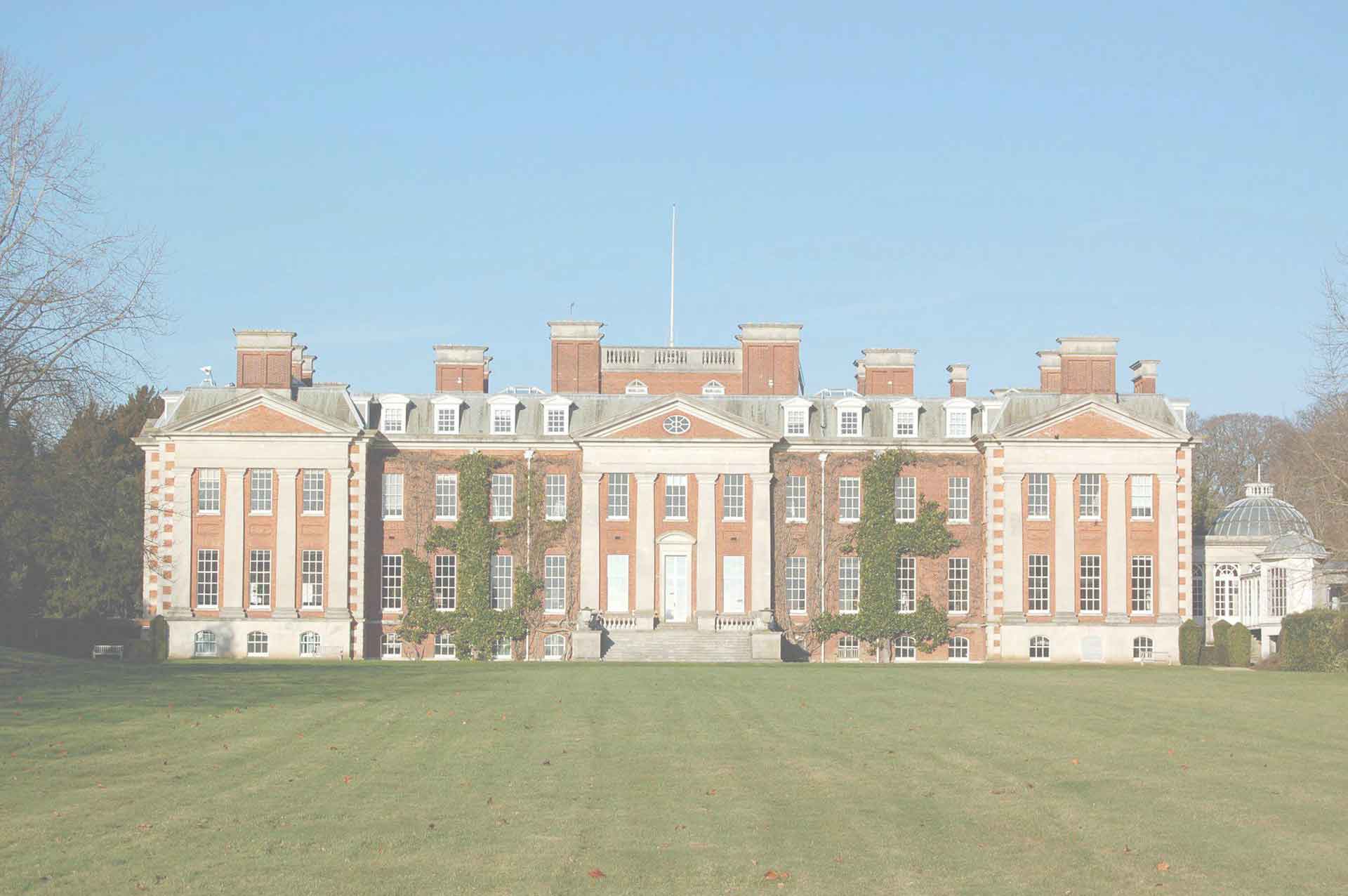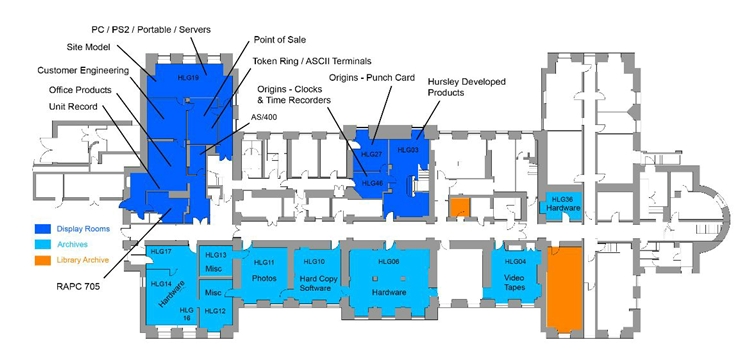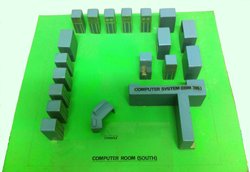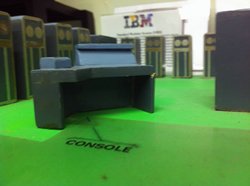The Museum Display Rooms
Take the panoramic tour to see our rooms in detail. Some of these images may not quite reflect the current status. As the curators are all volunteers with limited time, displays may be changed some time before photos are updated.
Hursley Development Laboratory - HLG03
This collection comprises a range of products developed in Hursley over the years including various storage devices - disk and solid state, a range of monitors, various adapter cards, mainframes, silicon chips, a replica of the first ever modern ATM, the IBM 2984 Lloyds Cashpoint, and software.
Origins of IBM - HLG27 & 46
These two rooms contain objects from companies which later became IBM. The Computing Scale Company, the Tabulating Machine Company and the International Time Recording Company which together formed the Computing-Tabulating-Recoding Company (CTR) in 1911. CTR was renamed the International Business Machine Corporation in 1924. These were joined in 1933 by the Electromatic Typewriter Company, and an example of the first electric typewriter can be seen in the Office Products Room. Artefacts here include clocks, scales, punch card & unit record machines. 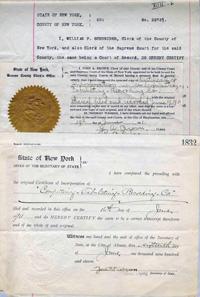
Our oldest artefact on display here is the pantograph punch dated 1889. We also have the last card punch designed by IBM, the 5496, which used 96 column cards.
Office Products, AS/400, Unit Record - HLG19
These rooms contain a range of Office Products Division machines including typewriters, word processors, dictation equipment and a photocopier. There is a small display of AS/400 in a small adjoining room, a tabulator and other unit record machines.
Customer Engineering, Point of Sale - HLG19
This room is laid out like a customer engineering workshop. Typically these CE rooms would be found on all customer sites with volumes of hardware that would justify it. There would also be a storage cupboard or area for spare parts, as well as extensive documentation such as CEMs (Customer Engineering Memoranda). On display are items of hardware opened up for repair, tools, test equipment and documentation, including an ALD Trolley (Automated Logic Diagrams), a common site in all computer rooms. In the next room is a small display of Point of Sale hardware (cash tills), together with ASCII terminals, Token Ring and a Sequent server.
PC, PS/2, Thinkpad - HLG19
These items include early PCs, PS/2s, home computers, servers and portables. The first all-in-one IBM computer, the 5110, can be seen here, together with a S/23, General Systems Division's version of a personal computer. There is also a scale model of the Hursley site as it was in the 1980s.
Royal Army Pay Corps - HLG19
The museum is fortunate to have on display a number of machines on loan from the Adjutant General's Corps Museum at Worthy Down. The display consists of an IBM 705 console, 727 tape drive, 024 card punch, 056 card verifier and a 3350 DASD. These machines were used by the then Royal Army Pay Corps at Worthy Down. Apart from its usual duties, the 705 was used in the 1961 UK Census, the first time a computer was used for this purpose.Getting some of this hardware into Hursley House proved a challenge - read more here!
You can read about some of the restoration work we have done on the 024 and 056 here.
We also have a model of the computer room showing the extent of the 705 installation, and a scale model of the 705 console with working flashing lights.
Other Displays - Library & HLG Corridor
There are three display cabinets in the lower ground floor corridor containing a selection of storage devices and storage media, and some keyboards.
In the library on the ground floor you will find a drawing board, photographs of the Vickers Supermarine days and some archeological finds from around the site.
Other Facilities
In addition, we have facilities to play and transcribe video tapes, including the main formats available - Betacam, Umatic and VHS, as well as slide and foil projectors and a PC projector.
